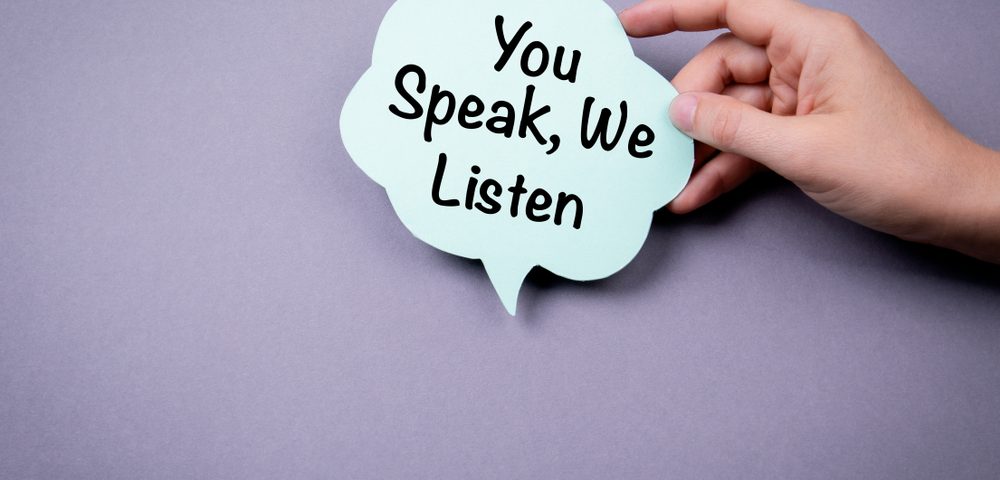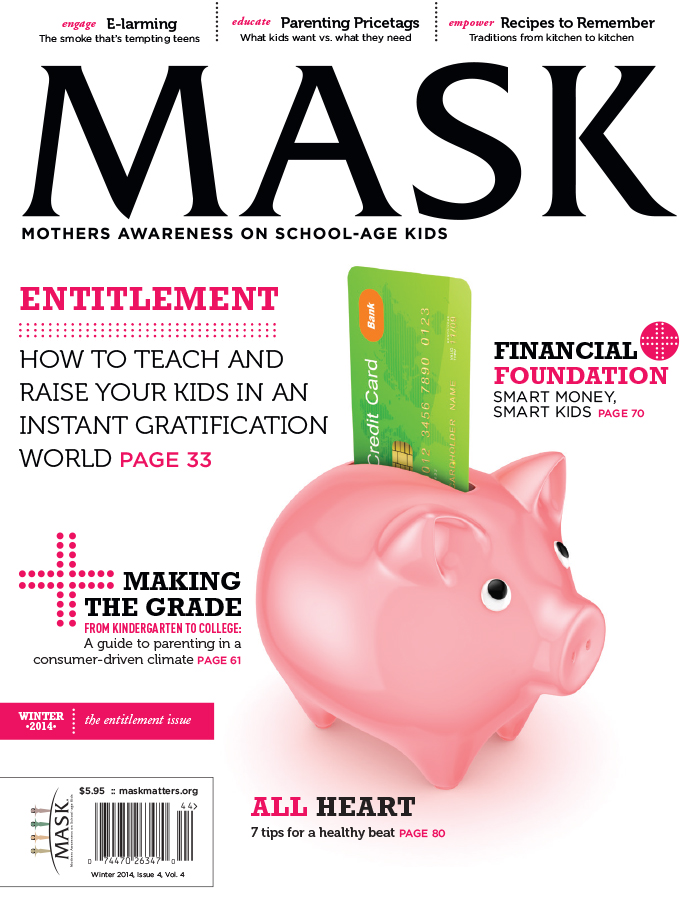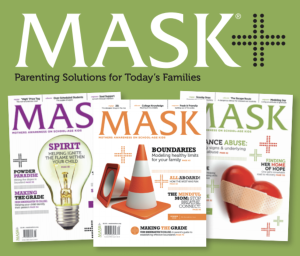
MASK’s Need-to-Know Tips
February 12, 2022
Connect with Life
February 16, 2022Entitlement-free tweens tend to have parents who have been more authoritative in their parenting style. Rather than trying to be their child’s friend, the “cool” parent, or the authoritarian parent who says “my way or the highway,” authoritative parent tends to be more democratic. They listen, hear, think, solve problems and respond to demands. Instead of resolving the problem immediately by giving in to the demands of the newest gaming system or designer shoes, authoritative parents develop a long-term plan to help their child earn the big rewards.
When parents give in to demands, they are setting their child up with a false sense of entitlement that continues into adulthood. The child begins to think they are entitled to expensive cars, gadgets and clothing just because, rather than understanding the value of these items and working hard to earn them. Children with parents who give in to their demands tend to do poorly in school, behave in ways that are selfish, and act in unkind ways because they truly believe that the world owes them.
How do parents challenge this “give me” attitude? The first thing is to remember that it’s never too late to teach the importance of hard work and persistence. These lessons give children the tools they need to survive high school and adulthood in a independent manner, rather than growing up to be dependent, underachieving adults with poor self-esteem and social skills.
Start by explaining the new rules to your child. Help them understand the shift in the household by giving them real-life examples of what happens to entitled adults.
Child reading list
“A Long Walk to Water: Based on a True Story” by Linda Sue Park
“What the Moon Said” by Gayle Rosengren
“Absolutely Almost” by Lisa Graff
Parent reading list
“Cleaning House: A Mom’s Twelve-Month Experiment to Rid Her Home of Youth Entitlement” by Kay Wills Wyma
“12 Huge Mistakes Parents Can Avoid: Leading Your Kids to Succeed in Life” by Tim Elmore
“Surviving Your Child’s Adolescence” by Carl Pickhardt
Signs & Behaviors
Asks for unreasonable things and hold parents hostage by saying things like, “If you don’t get this for me then I will…”
Doesn’t appreciate what they do have and is always asking for more
Says things like, “All my friends have it, why can’t I?”
Shows arrogance and believes that they deserve whatever they want
Is rude, demanding and defiant to the point of cruelty
Manipulates situations to get what they want
Does not take responsibility for their actions
Expects rewards for all behaviors
What you can do
Listen to your child. Validate their desire, tell them you understand why they want what they want, then remind them that just because they want something does not mean they get to have it.
Evaluate the item and decide if it’s something they can earn or if it is too expensive. Set a limit and remember it’s OK to say no.
Don’t let them think that the world revolves around them. If you allow them to think the world is their oyster, they will not know how to work for what they want because they will just expect to get it.
Teach them to think about others, and model that attitude yourself.
Expect them to do chores and be part of the household community, rather than asking them to participate. Keep a household attitude of gratitude.
Model that what you have is enough. Discuss the difference between want and need.
Educate tweens about poverty, underserved populations and giving back rather than always wanting. Volunteer with them. Help them create projects that are about giving to people who have less than them.
Clean house. Have your child find items that are no longer needed and donate them to homeless shelters and other programs.
Conversation starters
“I want you to learn the value of money and how hard people have to work to get what they want. Here is a list of extra chores, tasks or jobs that you can do to earn money towards that new DS.”
“I understand how important that item must be to you. We can figure out a way for you to earn it together.”
“I want you to understand how fortunate we are with what we have. What are some groups of people who don’t have what we have? What can we do to help them?”
To learn more about Entitlement add this issue to your MASK Library
MASK the Parenting Magazine a quarterly publication providing solutions for Today’s Families.
The parenting manual offering solutions to the modern-day challenges families face. From Pre-K
through College stay up to date on the modern day issues families face.
Are you up to date on the issues your child is facing?
MASK Mothers Awareness on School-age Kids offers parenting solutions for today’s families. MASK tackles important topics – from drugs and alcohol to bullying and Internet safety -and gives students, parents and the community the knowledge and tools to manage these potential challenges.
Subscribe today! https://www.tools4teaching.com/product/mask-the-magazine/
Download and share the MASKmatters app now! Made for children, parents, teachers and in Spanish.
Have solutions at your fingertips
Available free on apple and google play links below
Apple https://apps.apple.com/us/app/maskmatters/id1482305692
Google Play
https://play.google.com/store/apps/details?id=com.maskmatters.maskmattersapp&hl=en_US&gl=US





